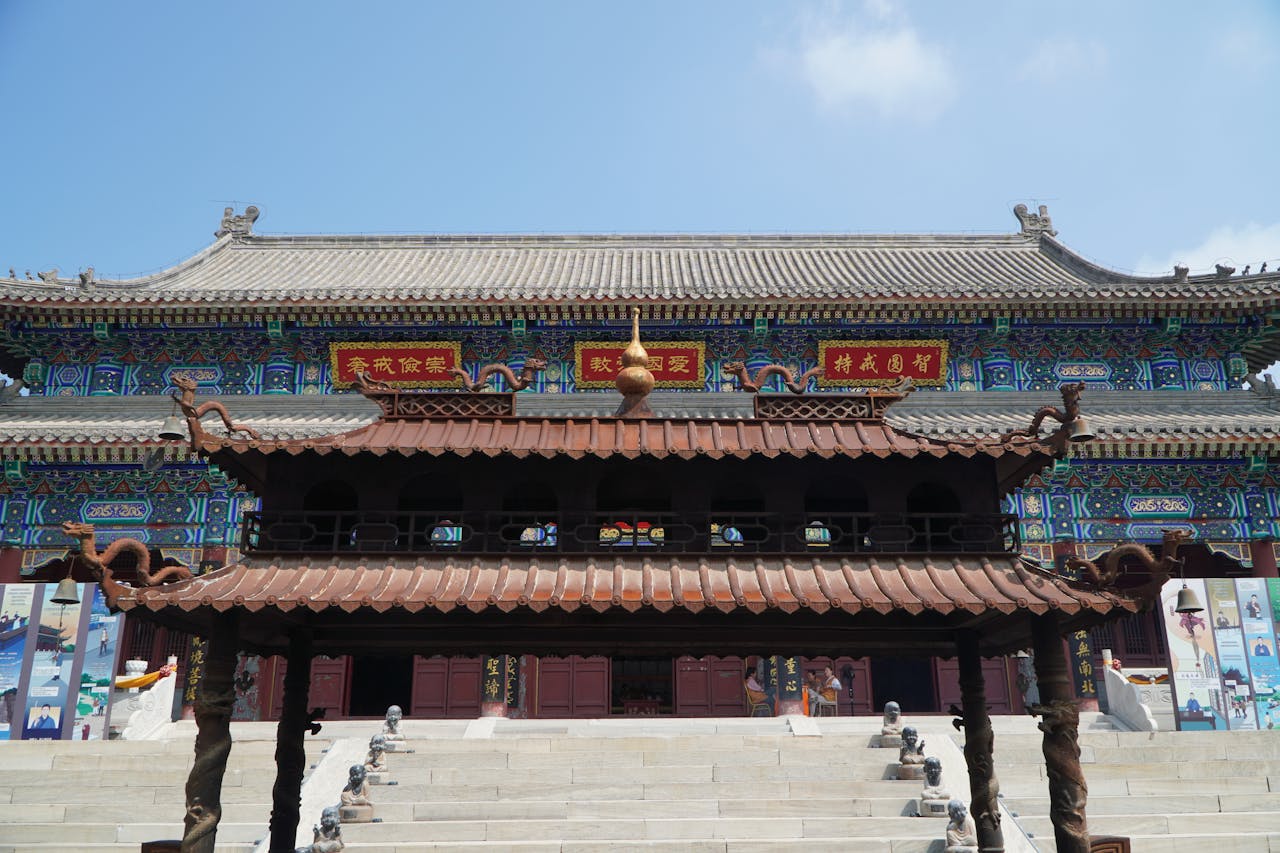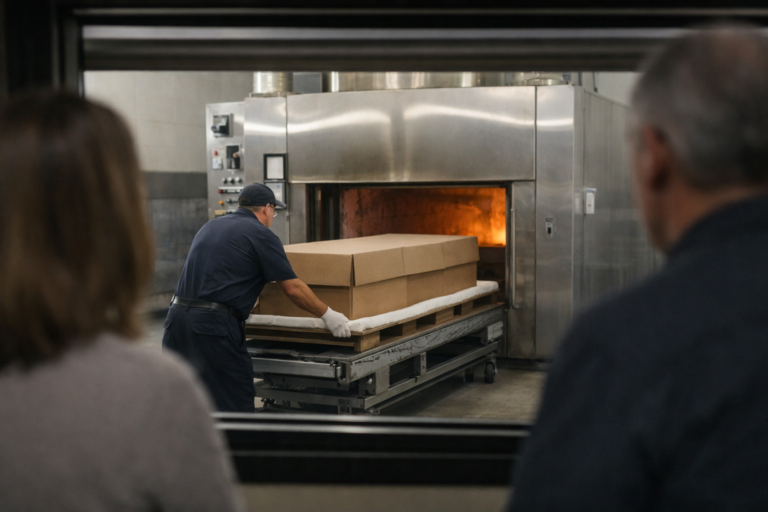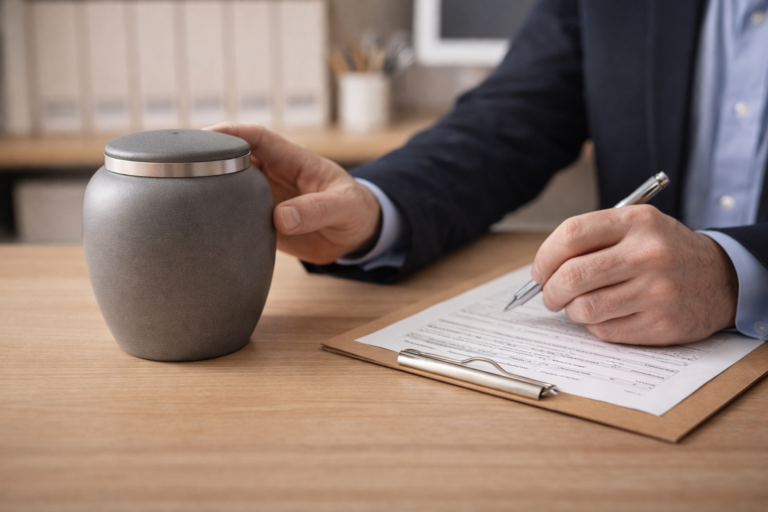Funeral Traditions in East Asian Religions: Buddhism, Taoism, and Confucianism
In East Asia, religious and cultural traditions often intertwine to shape funeral practices. Unlike Western religions that focus on a linear view of life and death, East Asian belief systems—such as Buddhism, Taoism, and Confucianism—tend to emphasize cyclical existence, ancestral reverence, and balance with nature. This article explores how each of these influential worldviews approaches death, mourning, and remembrance.
According to Pew Research Center, Buddhists, Taoists, and Confucianists combined represent a small but meaningful portion of religious life in the United States. As of 2021, about 1% of U.S. adults identify with faiths categorized as Buddhist or “Other World Religions,” which includes Taoism and Confucianism. While numerically small, these traditions have a rich cultural presence, particularly among East Asian immigrant communities and American-born practitioners interested in ancestral or philosophical rites.
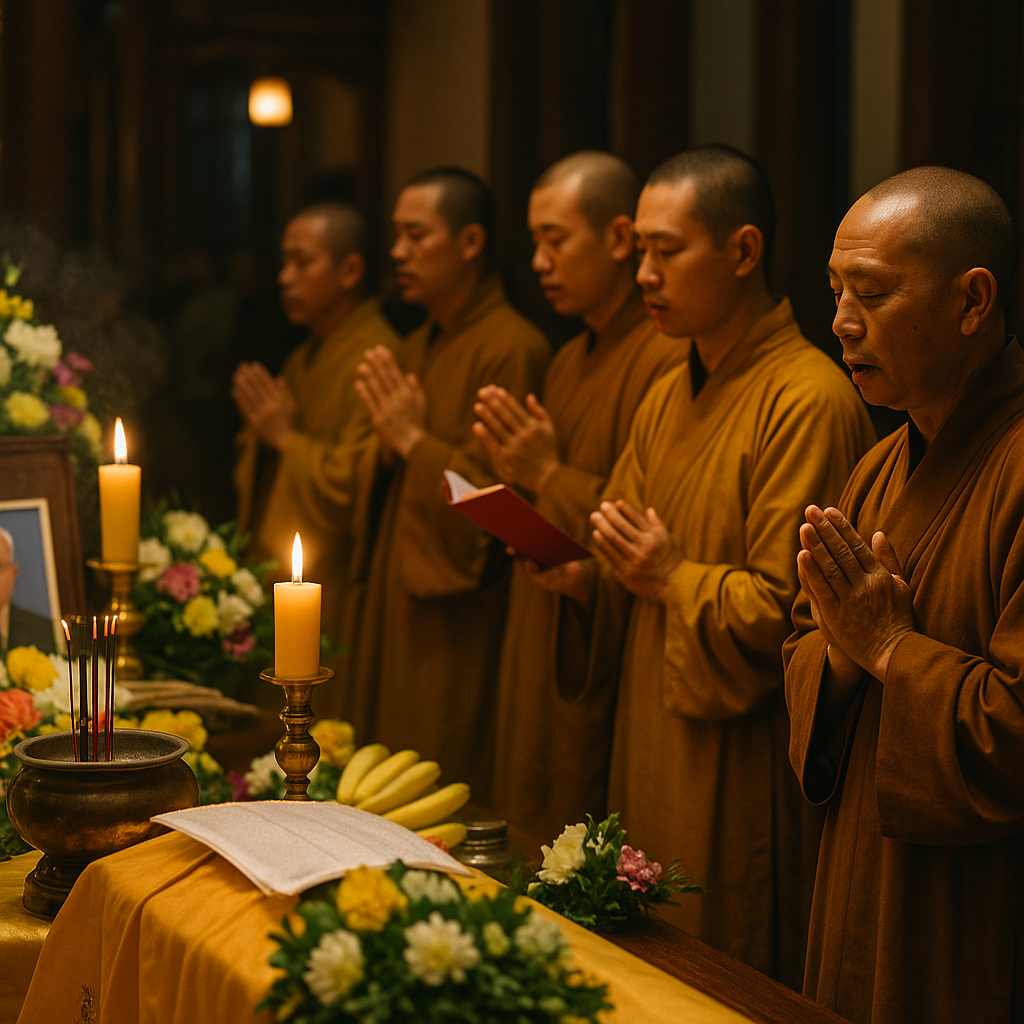
Monks chant sūtras in front of an altar adorned with offerings, flowers, and candles during a traditional Buddhist funeral.
Buddhist Funeral Traditions
Buddhism, widely practiced across East and Southeast Asia, teaches impermanence (anicca), rebirth, and the karmic consequences of one’s actions. While customs differ across regions and schools (Theravāda, Mahāyāna, Tibetan, Zen), most Buddhist funerals aim to support the deceased’s transition to a better rebirth and to offer merit on their behalf.
Common Funeral Practices
- Chanting of Sutras: Monks or family members chant Buddhist scriptures such as the Heart Sutra or Amitabha Sutra to calm the deceased’s spirit and guide them.
- Offerings: Incense, food, candles, and flowers are offered at altars or temples.
- Transfer of Merit: Family members perform good deeds or sponsor rituals in the name of the deceased to aid their karma.
- Cremation is the most common method of disposition, reflecting the Buddha’s own funeral.
Mourning Periods
- Some traditions observe rituals on the 3rd, 7th, 49th, and 100th days after death.
- In Mahāyāna Buddhism, the 49-day period is crucial, symbolizing the bardo or intermediate state before rebirth.
Taoist Funeral Traditions
Taoism, rooted in ancient Chinese cosmology and spirituality, sees death as a natural return to the Tao—the universal flow of life. Taoist funerals emphasize harmony between the spirit, body, and cosmos, and often blend elements from folk beliefs and Buddhism.
Funeral Components
- Priest-led rituals: Taoist priests perform complex rites to guide the spirit through the afterlife and protect the living from misfortune.
- Symbolic Items: Paper money, clothing, houses, and other goods are burned as offerings for the deceased to use in the spirit realm.
- Directionality: The body may be placed facing a specific direction, and the casket placement follows feng shui principles.
- Gong and Drum Music: Used to ward off negative energy and guide the soul.
Spiritual Beliefs
- Emphasis on yin-yang balance and spiritual cleansing.
- Rituals are often designed to ensure the spirit doesn’t become a “wandering ghost,” which is feared in traditional belief.
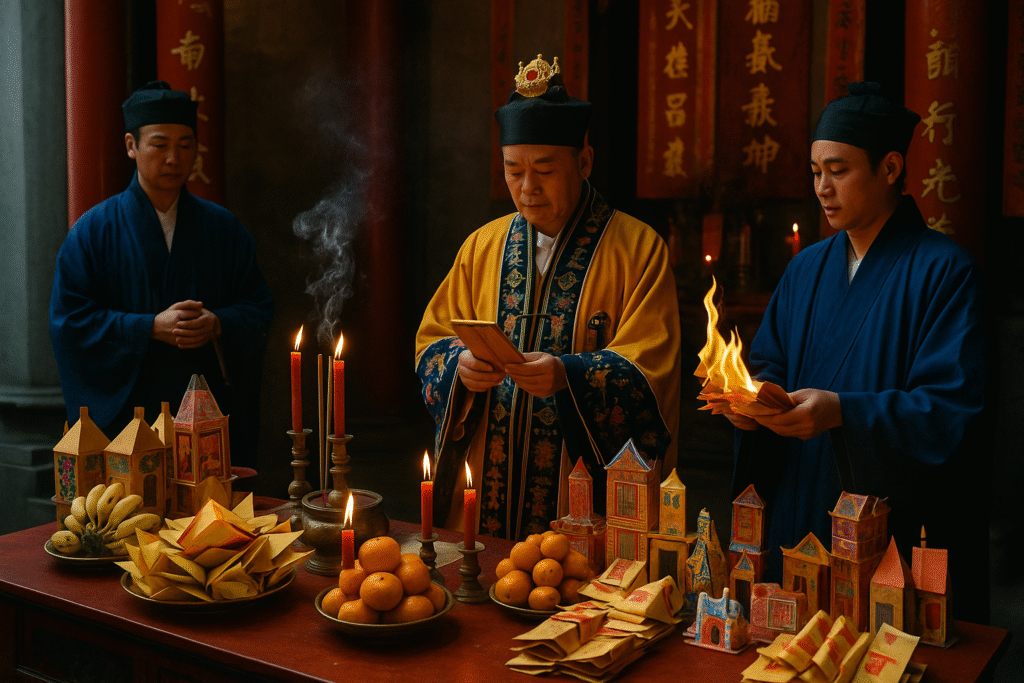
Taoist priests perform sacred rites in a temple, offering symbolic paper items, incense, and fruit to guide the spirit of the deceased.
Confucian Influence on Funeral Rites
Confucianism is not a religion in the theistic sense, but its ethical framework deeply shapes filial piety (xiao), ritual propriety (li), and respect for the dead in Chinese society. Its ideas often work alongside Buddhist or Taoist rituals.
Mourning Practices
- Mourning garments: Family members wear white or undyed hemp clothing, especially children of the deceased.
- Hierarchical mourning: Length and type of mourning depend on relationship to the deceased.
- Ancestor veneration: Maintaining ancestral tablets or shrines at home is encouraged, with regular offerings and rituals.
Burial Customs
- Burial is traditionally preferred, but Confucian principles mainly emphasize respect and remembrance over specific methods.
- Annual rituals like Qingming Festival involve tending to graves and making food offerings.
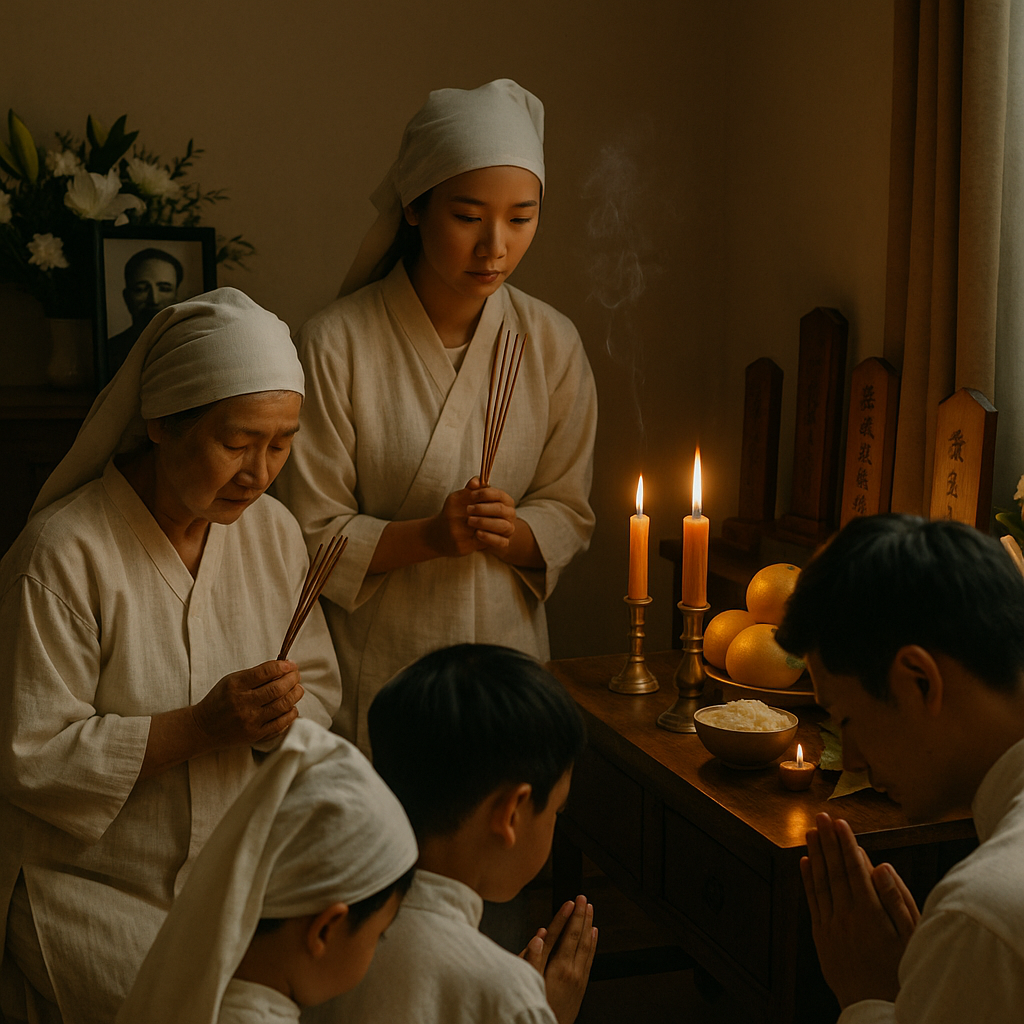
Family members in traditional white mourning clothes offer incense and prayers at an ancestral altar during a Confucian funeral rite.
Cremation and Modern Adaptations
While cremation is widely accepted in Buddhist contexts, Taoist and Confucian-influenced traditions traditionally preferred burial. However, due to urbanization and policy (e.g., in mainland China), cremation has become more common—even among traditionalists.
Families today may choose hybrid services blending modern practices with traditional rituals, often influenced by personal beliefs, local custom, and availability.
ABOUT ANUBIS
Anubis Cremations serves families throughout California, providing cremation services with a calm, transparent, and environmentally conscious approach. The organization focuses on clarity, legal compliance, and respectful care, supporting families as they navigate practical and emotional decisions around death.
Learn more at https://anubiscremations.com/
Call us 24/7 at (323) 644-3323
Email: info@anubiscremations.com
References
- Buddhism and Death / Funeral Rites and Rituals. (n.d.). 101.school. Retrieved from https://next.101.school/courses/buddhism-101/modules/9-buddhism-and-death/units/2-funeral-rites-and-rituals
- Buddhism practices: Buddhist funeral rites. (n.d.). Maithri.com. Retrieved from https://maithri.com/links/articles/buddhism-practices-buddhist-funeral-rites/
- Buddhist rituals for death. (2023). SpiritualCulture.org. Retrieved from https://spiritualculture.org/buddhist-rituals-for-death/
- Common Taoist Customs to Remember the Deceased. (2025, December 20). MediumSpot. Retrieved from https://www.mediumspot.com/common-taoist-customs-to-remember-the-departed/
- Taoist Funeral Customs and Traditions. (n.d.). ALifeGrad.com. Retrieved from https://www.alifegrad.com/taoist-funeral-customs/


